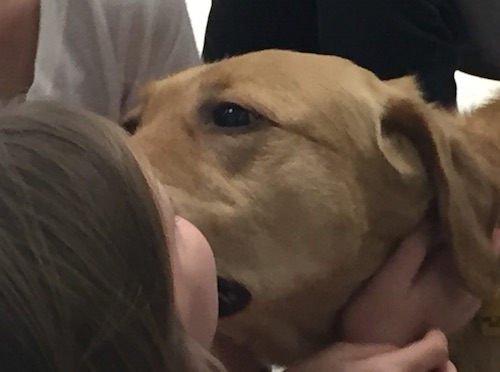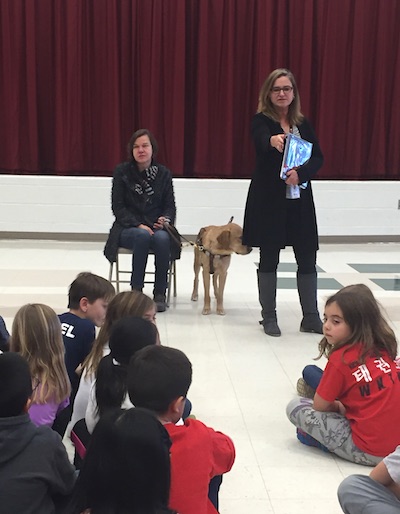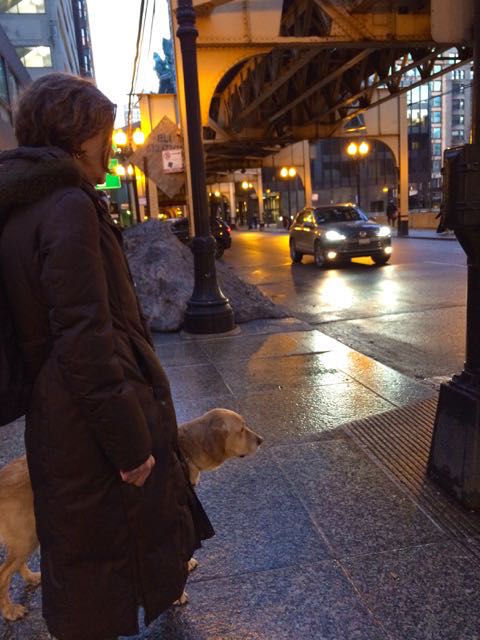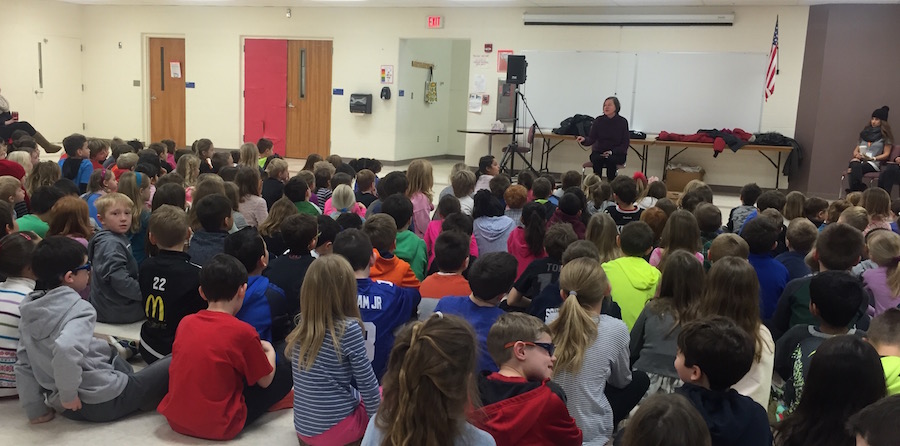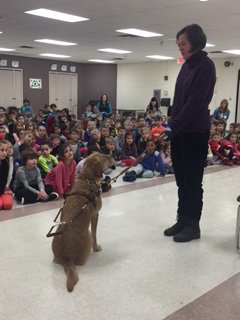About the organ transplant
January 27, 2016 • 8 Comments • Posted in baseball, travel, UncategorizedI wrote here last month about my friend (and baseball organist) Nancy Faust donating her home practice organ to an auction benefiting Chicago White Sox Charities. Boston Red Sox organist Josh Kantor placed the winning bid on the Hammond Elegante Model 340100, and earlier this month a slew of his Chicago musician friends picked up a rental van in Chicago to deliver it to Kantor in Boston.
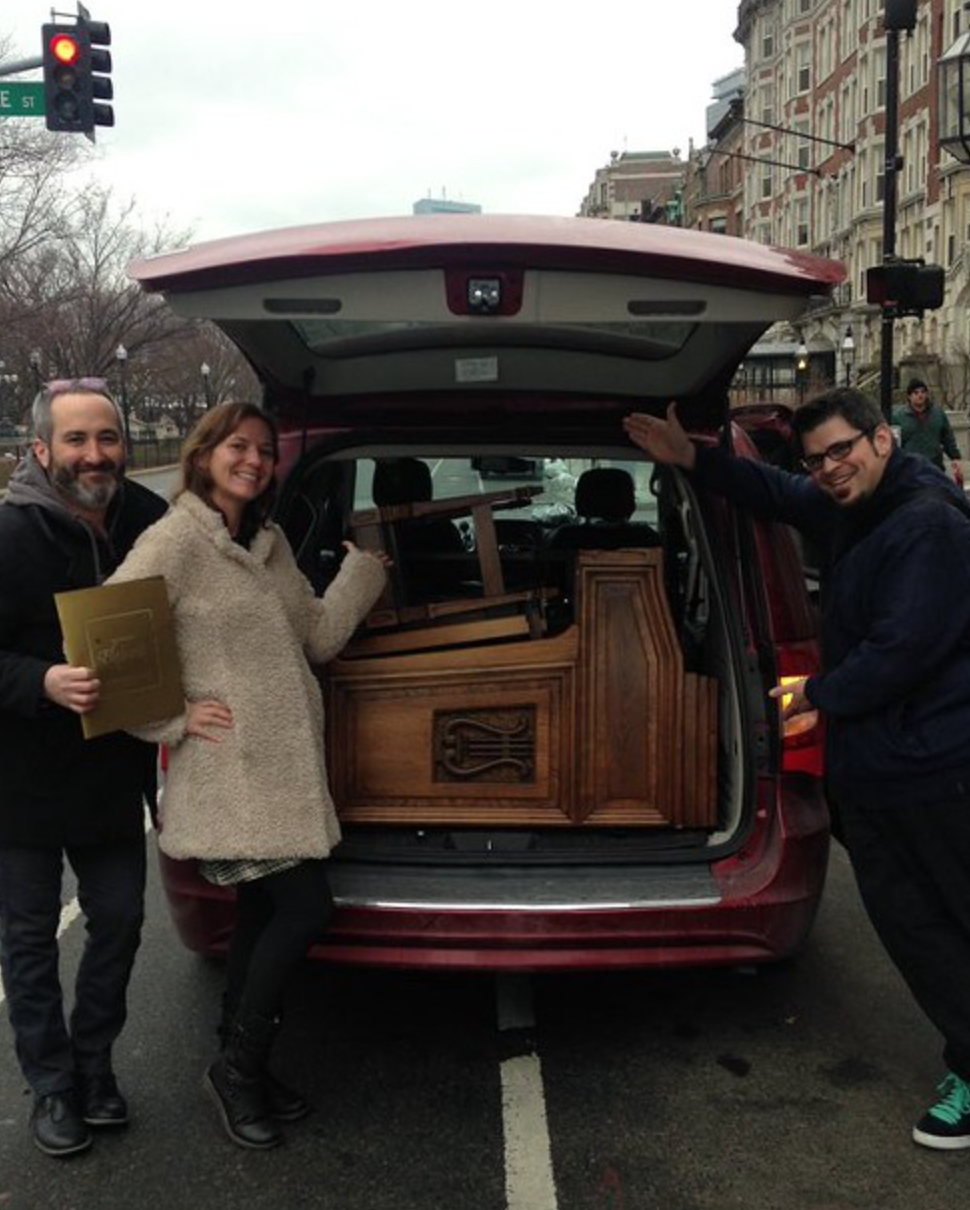
The organ juuusssst barely fit in the van.
The musicians took a pit stop at the Baseball Hall of Fame in Cooperstown along the way, and a story in the Chicago Reader this month reported that the trip almost didn’t happen at all: They measured ahead of time, but when they got the rental van, the organ didn’t fit. “The crew managed to Tetris it inside,” the story said. Singer Kelly Hogan was on the moving crew and told the reporter that the musicians who drove the organ to Boston all have many, many miles in band vans between them, and that it was “pretty normal” to be resting her arm on an organ as they were traveling.
The story said Josh Kantor was overwhelmed by the scores of people who called and e-mailed and texted him asking what they could do to help get the organ to his home in Boston. “A friend sawed a metal railing off the entrance of Kantor’s house so the organ could be moved inside,” the story said. “Another donated a Nancy Faust bobblehead, which became a focal point of videos documenting the trek.”
Nancy was vacationing with her husband Joe in the Southwest while the organ transplant took place, but she emailed me a few times to send clips of stories and interviews with Josh Kantor about his new musical Instrument. “Here is a link to this morning’s interview on 670 the score with Josh Kantor who bought the organ,” one note read. “What a gracious guy. The ballpark has enabled me to meet the nicest people.”
Nancy sent me the Chicago Reader article I’ve been quoting in this blog post, too, along with another note. “Hi Beth, This is a rather long, very inclusive account from today’s Reader about my ‘organ transplant,’” she wrote. “Josh Kantor has been far too kind but hopefully gained the best memories, friendship bonds, and the Red Sox recognition from the whole adventure. Love, Nancy.”
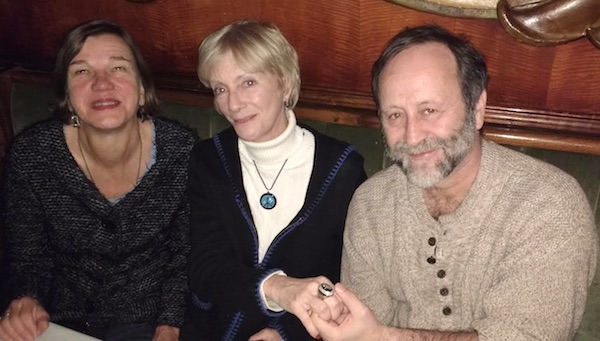
Me and Mike with Nancy Faust at the Green Mill awhile back. Nancy showed Mike her World Series ring.
The Nancy Faust-Josh Kantor mutual admiration society was formed when Kantor was hired as Red Sox organist in 2003. Over drinks and Hammond B3 music at the Green Mill in Chicago last month, Nancy told me how Josh flew to Chicago to see her when he got that job at Fenway. “He spent the day with me,” she said, and that story in the Chicago Reader quotes Kantor saying, “That was one of my favorite days ever!”
Kantor told the reporter that during that visit, among other things, Nancy urged him to keep updating his repertoire. “If you want to do this for a long time and not turn into a dinosaur like a lot of other organists have, keep learning new songs.” More from the Chicago Reader story:
His fascination with her process helps explain why he was so interested in purchasing this particular organ. “To me, the organ that was in her home for 35 years, that was her practice instrument, was as interesting—if not more interesting—because that was the lab instrument, basically. That was where she did all her homework,” he says, laughing. “That was where she concocted all her genius.”
Baseball organists are a dying breed – MLB reports fewer than a dozen ballparks still hire organists, and many of the musicians are only allowed to play a few times throughout the game and “Take Me Out to the Ballgame” in the seventh inning. The Chicago Reader story called Kantor one of the “most vocal proponents of organ music and its role in baseball,” and it sounds to me like he’s doing a great job. He couldn’t help but notice how open and accessible Nancy Faust was to fans at White Sox Park, and he said he tries to do the same, with a modern twist: He takes song requests via Twitter (@jtkantor) at Fenway.

